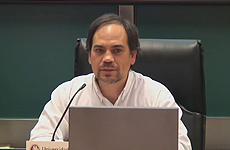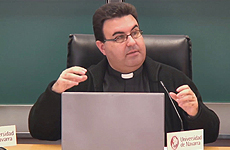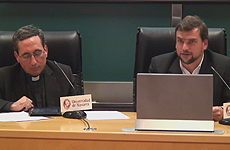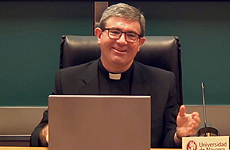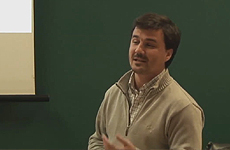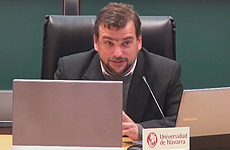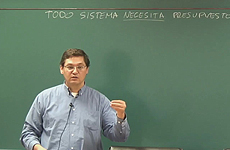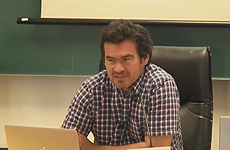You may be interested in:
Workshop: Epistemological Analysis of the Science-Religion Dialogue
The difficult epistemological relationship between science and religion
Pamplona, 9 and 10 November 2016
University of Navarra, classroom 30 Central Building
Ricard Casadesús (Faculty of Philosophy, Ramon Llull University)
Answered by: Daniel Blanco (Universidad Nacional del Litoral, Santa Fe, Argentina)
summaryThe aim is to provide a synthesis of cosmic evolution and biological evolution, as well as a scientific description and philosophical reflection on the various theories that attempt to explain them.
Oscar Beltrán (Pontificia Universidad Católica Argentina, School de Philosophy y Letras)
Reply: Francisco Gallardo (University of Navarra, School Ecclesiastical Philosophy, CRYF)
summaryExamination of consonance: the spontaneous confluence of the conclusions drawn by the sciences and theology about features or properties of the universe.
Enrique Moros (University of Navarra, School Philosophy , CRYF)
Reply: Gonzalo Luis Recio (National University of Quilmes, department of Social Sciences)
summaryAristotle distinguishes Philosophy from other knowledge and tries to describe the progress of Philosophy. The former is insufficient and hinders the science-faith relationship. The latter makes it possible to see that, for naturalists, reality is nothing but appearances. He concludes with discussion on naturalism in Plantinga.
Gonzalo Luis Recio (National University of Quilmes, department of Social Sciences)
Reply: Jorge Martín Montoya (University of Navarra, School Ecclesiastical Philosophy, CRYF)
summaryDuhem claimed that the Ptolemaic explanation was only instrumental and places Galileo's detractors in this tradition. It is discussed whether Ptolemy was instrumentalist, and how Ptolemaic models were opposed to Aristotelian physics.
Ignacio del Carril (Austral University, high school de Philosophy)
Reply: Rubén Herce (University of Navarra, School Ecclesiastical Philosophy, CRYF)
summaryPascual Jordan (1902-1980) participated in the birth of quantum physics. He confronts three problems that science posed to religion: an infinite universe without a creator, the mechanical view of nature, and Darwin's theory. Mechanism and Jordan's response are examined, and some ideas about realism in science are drawn out.
José V. Orón (University of Navarra, ICS, group Mente-cerebro)
Answers: Javier Sánchez-Cañizares (University of Navarra, School ecclesiastical Philosophy, CRYF)
summaryThe paper illustrates how different areas of the knowledge presuppose the presence of an extra-systemic reality that gives them meaning: the knowledge of the "extra-system" is necessary to know any explanatory system.
Daniel Blanco (National University of Litoral, Santa Fe, Argentina)
Reply: Antonio Pardo (University of Navarra, School of Medicine, CRYF)
summaryIn the 19th century, three objections to the antiquity of the Earth were raised that coincided in shortening its history. This concordance proved to be false and posed difficulties for scientific realism. It is sample that, however convincing it may sound, it cannot be used to ensure the truth of theories.


